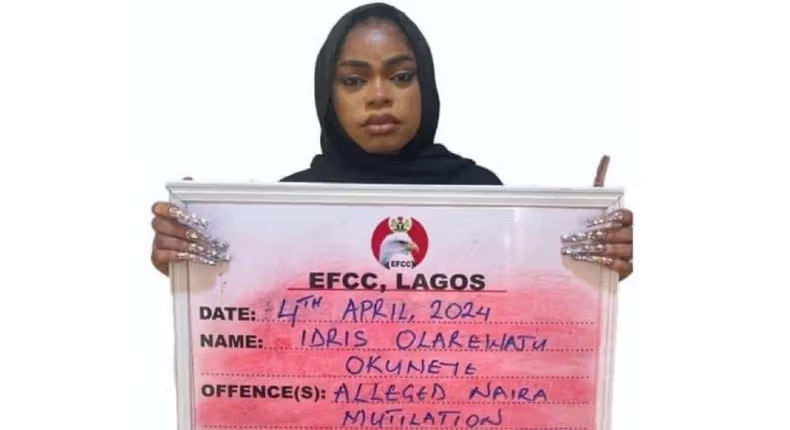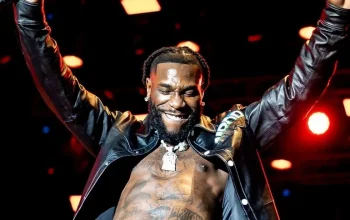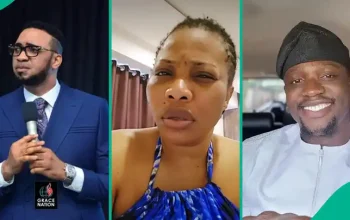The news of the arrest of Idris Olanrewaju Okunleye, famously known as Bobrisky, has stirred attention across Nigeria. The Economic and Financial Crimes Commission (EFCC) apprehended the popular Nigerian transgender socialite on Wednesday, April 3, 2024, in Lagos State.

Allegations of Naira Abuse by EFCC
Bobrisky’s arrest stems from accusations of abusing naira notes, as reported by Sahara Reporters. The EFCC, through its spokesperson Dele Oyewale, confirmed the arrest, stating that it was conducted based on suspicion of economic misconduct. Oyewale clarified that the arrest was unrelated to Bobrisky’s personal lifestyle but rather focused on potential financial infractions.
Addressing Economic Crime
The EFCC’s vigilance in tackling economic crimes underscores its commitment to upholding financial integrity within Nigeria. The agency’s swift action against alleged offenders reflects its dedication to enforcing financial regulations and preserving the sanctity of the national currency.
Advocating Financial Responsibility
Bobrisky’s case serves as a reminder of the importance of responsible financial behavior. While his arrest may spark debate and controversy, it also highlights the need for individuals to adhere to legal and ethical standards in their financial dealings.

The Role of Social Media Influence
As a prominent figure on social media, Bobrisky’s arrest has ignited discussions about the influence wielded by personalities in shaping public perception and behavior. The incident prompts reflection on the responsibilities that come with online influence and the potential consequences of misuse.
Bobrisky’s arrest by the EFCC underscores the agency’s commitment to combating economic crimes and promoting financial accountability. It serves as a cautionary tale regarding the implications of disregarding financial regulations. As the case unfolds, it will undoubtedly continue to spark conversations about the intersection of social media, personal conduct, and legal accountability.
Read also:
- Ajakaju Review: Beast of Two Worlds’ Falling Short of Expectations Despite Hype
- Breaking News: Oyo Deputy Police Commissioner Found Dead
- Marie Bliss, Moses Bliss’ Wife, Charms Crowd Speaking Akwa Ibom at His Concert
- Warning from Blessing Okoro to VeryDarkMan
- UGM kill University Lecturer in His Office, stole car and laptop
- Dunsin Oyekan: Why I Don’t Ask for Money to Sing the Gospel
- Jubilation as RCCG Introduces Discounted Food Market
- 16 Sex Positions for Intense Penetration
- Top 15 Universities in Nigeria Unveiled for 2024
- Taylor Swift Makes Forbes Billionaire List



